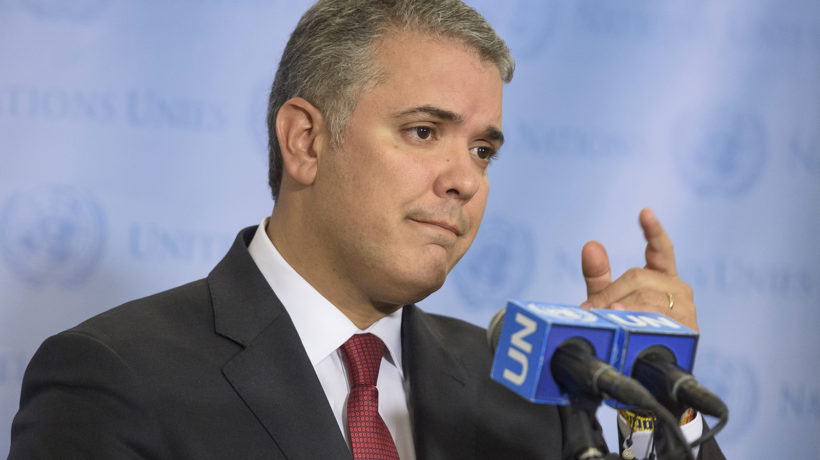A Reflection of Colombia’s President and his address at the UN Climate Action Summit Climate Crisis in South America: Real Action or Just Talk? What a President’s Speech at the UN really tells us about Commitment.
—
Colombia. A country the United Nations Development Programme (UNDP) described as “at high risk from climate change impacts.” So how do the remarks made by Colombian President Iván Duque Márquez at the UN Climate Action Summit held in New York on September 23 align with this very real threat? How is Colombia’s President ignoring the climate crisis?
Colombia compromises on climate change
The President duly pointed to domestic policies aimed at protecting ecosystems and promoting clean energy production and protection of the commons.
Natural disasters as a collateral effect of the climate crisis were also mentioned. The President said that they ‘demand that we act with a sense of urgency and determination; that we understand that this is the greatest challenge’.
However, Márquez neglected to address the root causes of human-induced disasters in Colombia that include environmentally detrimental practices in the mining and extraction sector as well as surface level resource exploitation. This can have rippling effects on communities.
‘Researchers have argued that ‘the substitution of social justice for market laws leads to different crises, especially those that erode human rights.’
You might also like: Germany to Phase Out Coal by 2038- A Done Deal?
Opposition to Fracking
Columbia’s state-run oil company, Ecopetrol, plans to embark on a fracking pilot programme in 2020. Not with standing the ongoing legal challenges in national courts, the company has been given permission to proceed with the implementation of the programme galvanising opposition movements against fracking, which environmental activists have linked to water contamination.
With the government having given a green light, natural reserves both terrestrial and marine-protected areas have been put at risk. According to Alessi, Zolfagharu, Kletke, Gehman, Allen, and Goss (2017), hydraulic fracturing fluid components such as petroleum hydrocarbons and heavy metals that are byproducts of the extraction process, pose major health risks to humans, and are major drivers of ecosystem toxicity.
A Contradiction in Terms
As the case of Colombia attests, what is preached abroad, is often not what’s witnessed on the ground. What is delivered from the podiums to the international community, does not always bare resemblance to the realities on the ground.
President Márquez revelled in the climate change rhetoric but his failings reside mostly in what went unsaid. Brushing aside controversial projects does not alter nor help resolve the fundamental tension between economic empowerment and the need for sustainable growth.
Colombia’s example is not unique. A global comparison between what political leaders claim in the international arena and their actual policy implementations might reveal other significant gaps between what is said and what is being done.


















